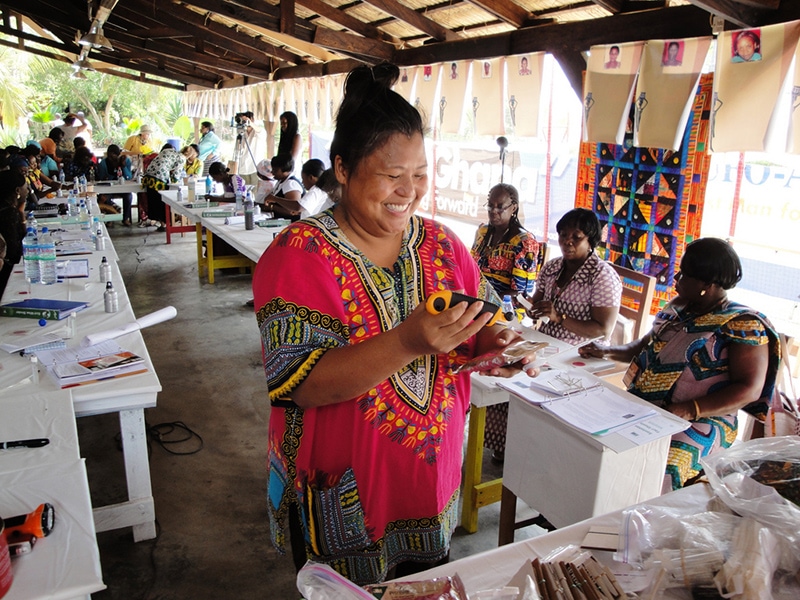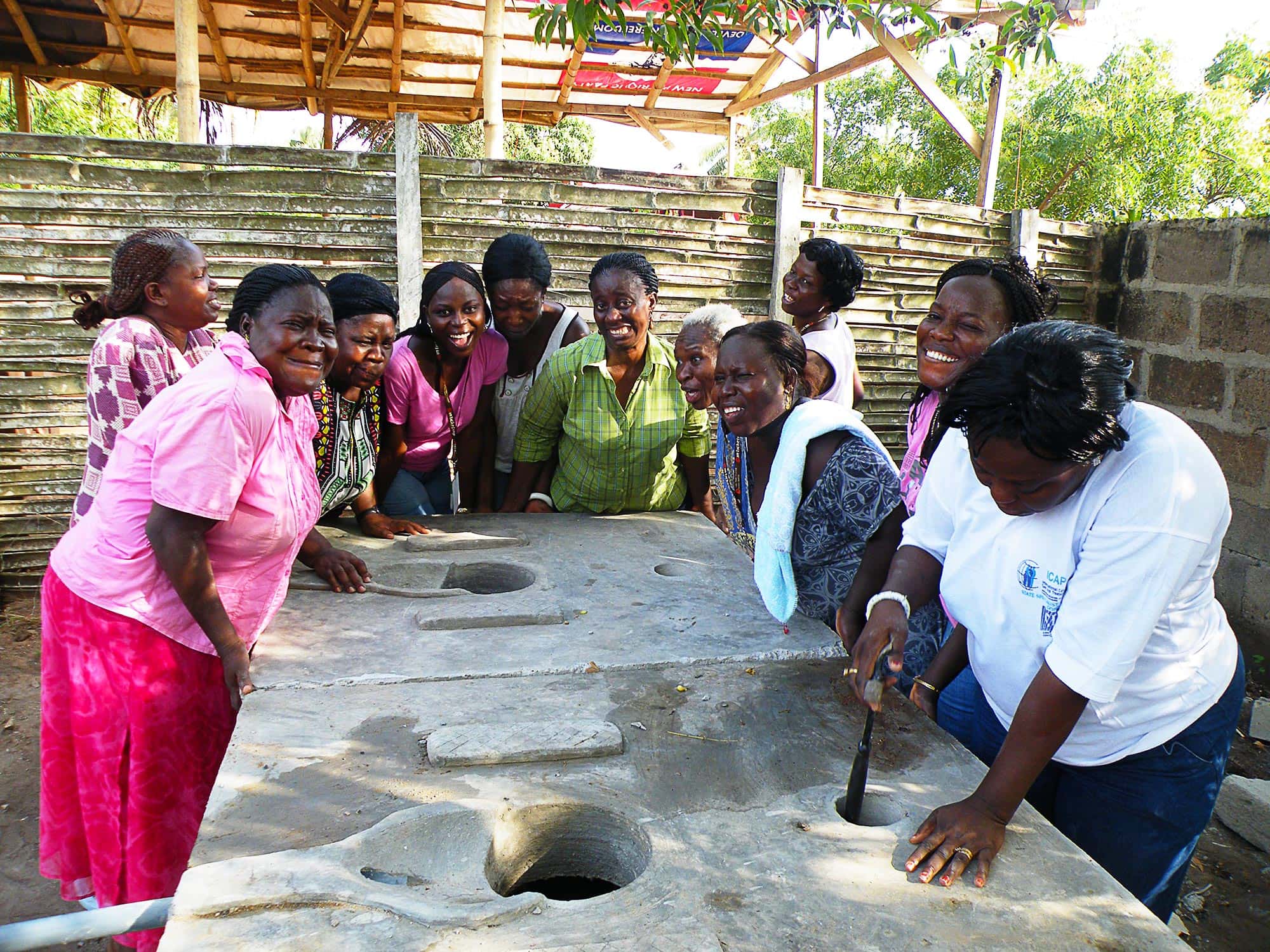The 2010 GWWI West African Women and Water Training, in partnership with Pro-Net Ghana, convened 30 women leaders for a year-long training supporting them to design and launch income-generating water and sanitation projects in their regions. Since the training, each team received seed grants to launch their projects, ongoing support from a network of Global Peers, and refresher technology trainings.
The Global Women’s Water Initiative was co-founded by three organizations: A Single Drop, Crabgrass and WEA. We came together to address the lack of women’s leadership in the WASH sector, despite women’s central role as water stewards. We hosted our first training in 2008 at Green Belt Movement with the support of Nobel Peace Laureate, Dr. Wangari Maathai. GWWI is now its own organization.
Meet the Women Leaders
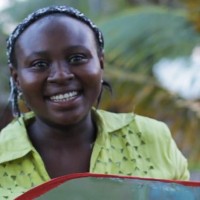
Nadiatu and Victoria are proof that this training reached far beyond water. These women left the structured environment of the training not only with technical knowledge, but also with the confidence and enthusiasm necessary to successfully implement water technologies in their own community. The two women were able to educate their village about the harmful bacteria in their current water supply and they helped design a water system that was best suited to their village.
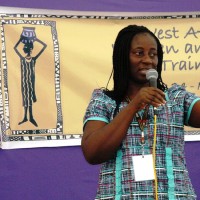
EGWWI team Ndudi and Elizabeth of Western Nigeria recently put their seed grant to action in support of the Idoye community. Their training introduced the water, sanitation and hygiene (WASH) program and, with the help of the community, constructed a much needed Eco-san composting toilet. To the members of the Idoye community, the Eco-san toilet will bring real change, improving the health of the community and ensuring the well-being of future generations.

AT A GLANCE
A World Bank evaluation of 122 water projects found that the effectiveness of a project was 6 to 7 times higher where women were involved than where they were not.*
About 157 million people in the Eastern and Southern Africa region (ESAR) are not connected to a clean and safe water distribution system, and thus need to use external water sources. Around 247 million people have no access to improved sanitation.*
Over 800 children under age five die every day from preventable diarrhoea-related diseases caused by lack of access to water, sanitation and hygiene.*

"[The women] were thinking it was only men that could do construction or work on water for women to use. But now we are really telling them that women can really go into the technology."
— MONICA AYOMAH, TRAINER, RAINWATER HARVESTING

THE TRAINING
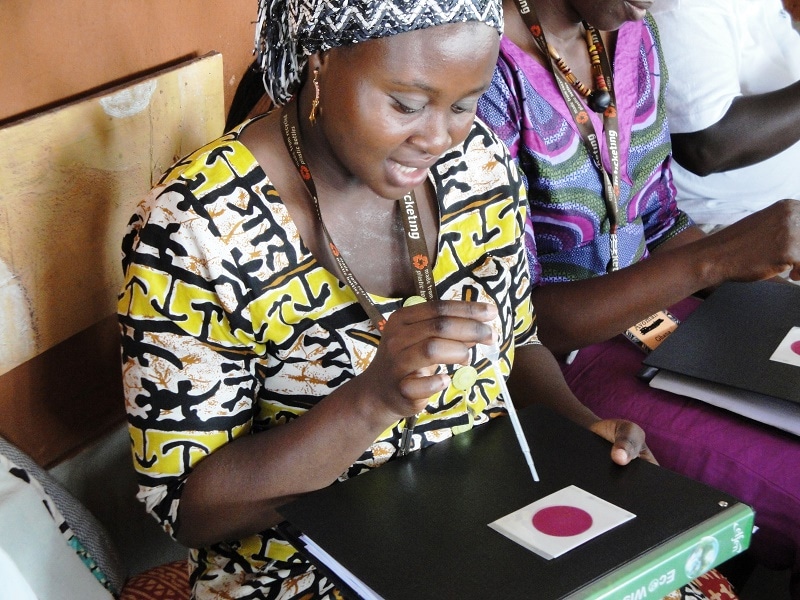
Over the course of the training program, these women built their skills in:
- Sanitation: through EcoSan Composting Toilet construction
- Water Access: through rainwater harvesting and plastic tank installation
- Water Quality: through BioSand Filtration system construction
- Water Pasteurization/Solar Cooking: through Cookit solar oven construction
- Grassroots Water Testing: through use of a portable microbiology lab
- Action Planning Facilitation: with Technology of Participation (TOP)
- techniques (Institute for Cultural Affairs)
- WASH Education: Learning the importance of WASH, and WASH education
- and outreach
In addition, the training also focused on providing resources and support in the following areas:
Business Development: The Training offered women valuable organizational and business skills and strategies. During the Training, women learned skills related to: Participatory Action Planning, Needs Assessments, Leadership project planning and sustainability, public and private partnerships, grant writing, budget design, and microfinancing.
Capacity-Building: The Training emphasized local leadership. The technology trainers were predominantly African women experts who had first-hand experience implementing water service projects. All training content was designed based on African customs and gender needs.
Relationship-Building: The Training provided a rich opportunity for cultural exchange: The Training placed a strong emphasis on cultural exchange, convening a diverse group of women (age, geography, cultural heritage). Sessions incorporated song, dance, story-telling, and trust-building. These connective experiences served as a foundation for sustained engagement and ongoing support among women participants.
TRAINERS AND GLOBAL PEERS
African women trainers: GWWI selected 8 women from East and West Africa to offer a majority of the trainings, bringing regional knowledge and cultural appropriateness to all sessions. These women conducted all of the refresher trainings in the villages of participants of the 2010 Global Women’s Water Initiative in Ghana. The Women and Water Training served as a platform from which the African women trainers could launch their facilitation careers.
Global Peers: We introduced a powerful new element to enhance the support system and networking capabilities of this year’s training program. International women volunteered to support participants during the training and throughout the coming year. Global Peers shared knowledge, supported participants’ action plans, and will become a key support mechanism for African women participants when they return home to launch and sustain their water projects.
THE IMPACT
The women who attended the Training introduced rainwater harvesting systems, composting toilets, water filtration systems, and solar cookers to communities that have been ravaged by drought, illness, or poorly-executed international aid projects; some are transitioning their pilot projects into successful micro-businesses; and others are stepping into local and regional government positions.
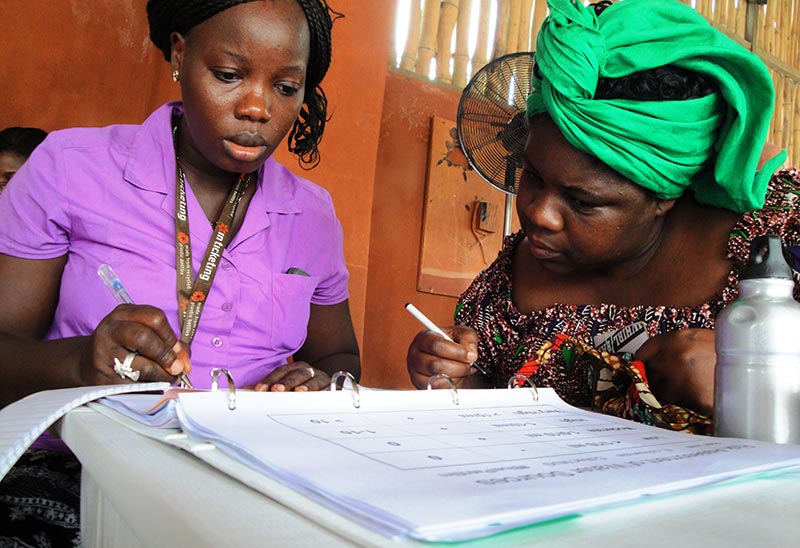
Overall, the Training:
- Provided 15 teams of West African women with training in appropriate water technologies, action planning and business to design and launch sustainable water projects in their communities.
- Promoted the leadership of 8 African Women Trainers that were contracted to teach action planning, business development, leadership, and appropriate technology construction during the 2010 Training.
- Matched 8 Global Peers with 15 teams of West African women participants to build strong networks between regional and international women, provide access to additional resources, and offer an ongoing support structure to participants of the 2010 Women and Water Training.
- Prepared participants to receive seed funding to launch a water project addressing their community’s specific water and sanitation needs.
- Trained participants to use a web-based tool to write and review each other’s project proposals and finalize their business plans.
- Distributed $1,500 of start-up capital to each team to launch the water projects they designed during the training.
African women Trainers also conducted on-site refresher trainings throughout West Africa for all training participants. Throughout the course of the year following the Training, global peers provided support for each community as women transformed their business plans into viable water projects.
15 teams of West African women leaders from Ghana, Liberia, Togo, Cameroon, and Nigeria participated in the West African Women and Water Training. Following the training, participants went through a peer review proposal process, organized trainings in each community, and received seed grants to launch their water projects.
In their first phase of implementation, these projects provided over 75 communities with clean water and sanitation. Many participants have gone on to train others to build rain water harvesting systems, composting toilets, water filtration systems or solar cookers; some transitioned their pilot projects into small businesses; and others have assumed local and regional leadership roles as decision-makers around water and sanitation.
Within 6 months after the training in Ghana, many women graduates were able to construct water and sanitation technologies in communities challenged by drought, illness and poor sanitation. But their impact did not end with the inauguration of these water projects. Graduates went on to mobilize communities, garner local political support, or raise funds to further their projects. On an ongoing basis, these graduates challenge gender stereotypes by teaching simple solutions like rainwater harvesting, solar cooking and composting toilets as well as educating their communities on proper sanitation and hygiene practices.
After attending the training in Ghana, two women leaders—Nadiatu and Victoria—returned to their village to share teachings and present their new water treatment system to the community. We invite you to experience the power of access to resources and training through their eyes in this short video.








